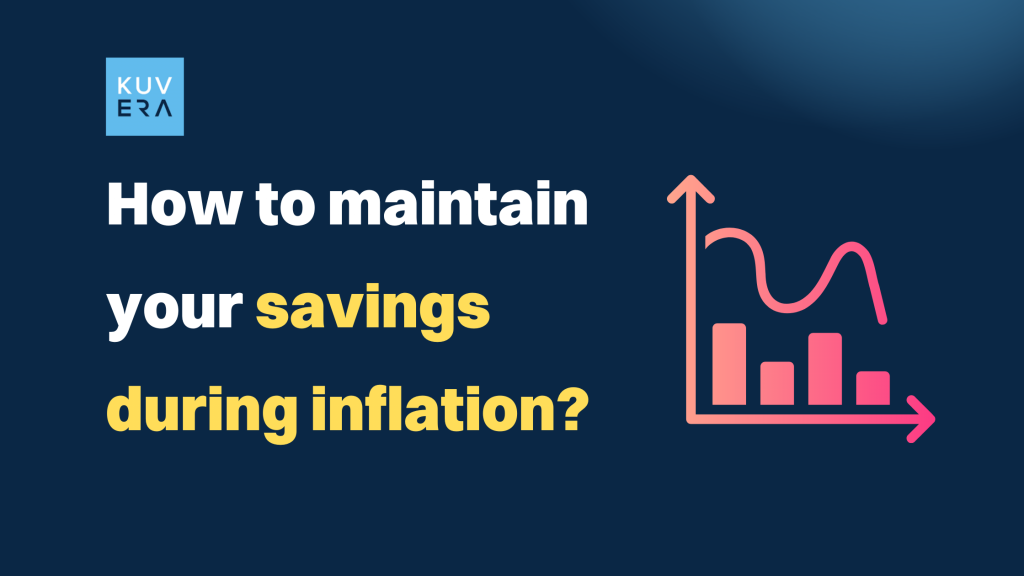Most of us have heard our parents or grandparents say at some point that back in their day, they could buy gold with ₹1000 or live an entire month with just ₹500.
Even in our younger years, the price of one Dairy Milk chocolate used to be just ₹5 or ₹10, now the same retails for ₹50 or ₹100. This gradual increase in the price of things and the decrease in the value of money is called inflation.
According to a report by worlddata, the average rate of inflation per year in India from 1960 to 2021 was 7.5%. This means that the price increase was 7,704.85 %. An item that cost ₹100 in 1960 was costing around ₹7,804.85 in 2021.
Even in 2022, the inflation rate in India has remained around 7%, this is higher than the mandatory threshold limit of 6%, set by the monetary policy committee (MPC) of the RBI. This number fell down to 5.51% in 2023 (Jan to May quarter).
This inflation has always been a cause of concern for individuals, financial institutions, the govt. and also the RBI.
How does high inflation affect savers?
Since the value of money is decreasing, any money you have saved in the bank or in cash will decrease in value and you will be able to do or buy fewer things with the same amount of money in the future.
In 2023, the real impact of inflation has been felt intensely by an average consumer worldwide. Fuel, education, housing, and travel expenses have increased drastically. The day-to-day expenses, even without any changing your lifestyle has gone up drastically. Central banks have been frantically finding ways to control this inflation in their respective countries.
In situations such as these, it is very important to take adequate financial measures in order to live comfortably without stretching your budget or worsening your financial situation.
These measures will help you maintain financial stability, and security and also bring you closer to your financial goals.
1. Invest your money
You might think that during inflation, you are already struggling to meet your expenses, so why should you invest?
But inflation is worse for people who have any kind of idle money in their account. Because that money will decrease in value. Therefore, it is better to invest the money somewhere where you will get similar or more returns than the inflation rate.
But, you have to be smart about investing in areas with limited risk. The last thing that you want is to lose money while you are already struggling financially.
In such scenarios, it is better to avoid stock market risks and invest in lesser-risk products like mutual funds. Mutual funds in India have an average return above 8% for a single year which is more than the rate of inflation i.e around 7%. This means the value of your money will increase instead of decreasing.
You should also invest in assets as the value of assets rises during inflation.
2. Analyze the impact
In order to make proper decisions about your investments, expenses, and other financial decisions, it is better to first analyze the personal impact of inflation you are experiencing.
This means that you need to compare your past expenses with your current expenses and figure out which are the areas where you are being affected by inflation.
This will make it clear which areas you need to cut costs from and how much additional income is needed to live your life normally.
3. Increase your earnings:
Increasing your earnings is not an easy endeavour, but during inflation, it can make your life much easier.
You can ask for a raise, but if that doesn’t work out you can try offering part-time services, renting out your car part-time, offering one vacant room in your home for Airbnb, etc.
The thing to remember here is that the value of all goods and services will increase during inflation, therefore you will get paid well for most services or goods you are offering.
4. Restrict your lifestyle expenses
In periods of high inflation like the one India experienced during the early half of 2022, it is wise to minimize your expenses and in extreme cases lower your living standards until things become normal.
This is not a long-term solution, but this works wonders for short-term high inflation scenarios.
Some common ways to do this are to unsubscribe from subscription-based services like movies/music streaming, limit your luxury expenses like going out to eat or watch movies, and delete all the shopping apps that prompt impulsive shopping habits.
5. Be vigilant of your finances
It goes without saying that you need to be extremely vigilant about your finances during inflation. Any kind of financial abnormality should be avoided during this phase. A few things to keep in mind are:
- Have your emergency fund ready for any abrupt financial needs. Make sure your emergency fund can handle financial shocks.
- Keep your long-term investments going. Do not let a short period of high inflation distract you from your long-term financial goals.
- Minimize your cash savings and increase your assets like gold, real estate, etc.
- Following your budget should be of utmost importance during this phase.
Conclusion:
According to the RBI, the peak inflation in India for this year is over in April 2022 and things will gradually go back to normal. This means the worse is done for now.
But inflation is not a short period event, the gradual inflation that occurs over years and decades has a larger potential to harm your financial stability and lower your standard of living in the future.
Therefore, it is important to learn financial tools and prepare yourself to tackle inflation and retain your financial potential in the future. Click here to read more about inflation and how to tackle it better.
Read more: Zen And The Art Of Investing
Watch/hear on YouTube: How to beat inflation in India?

